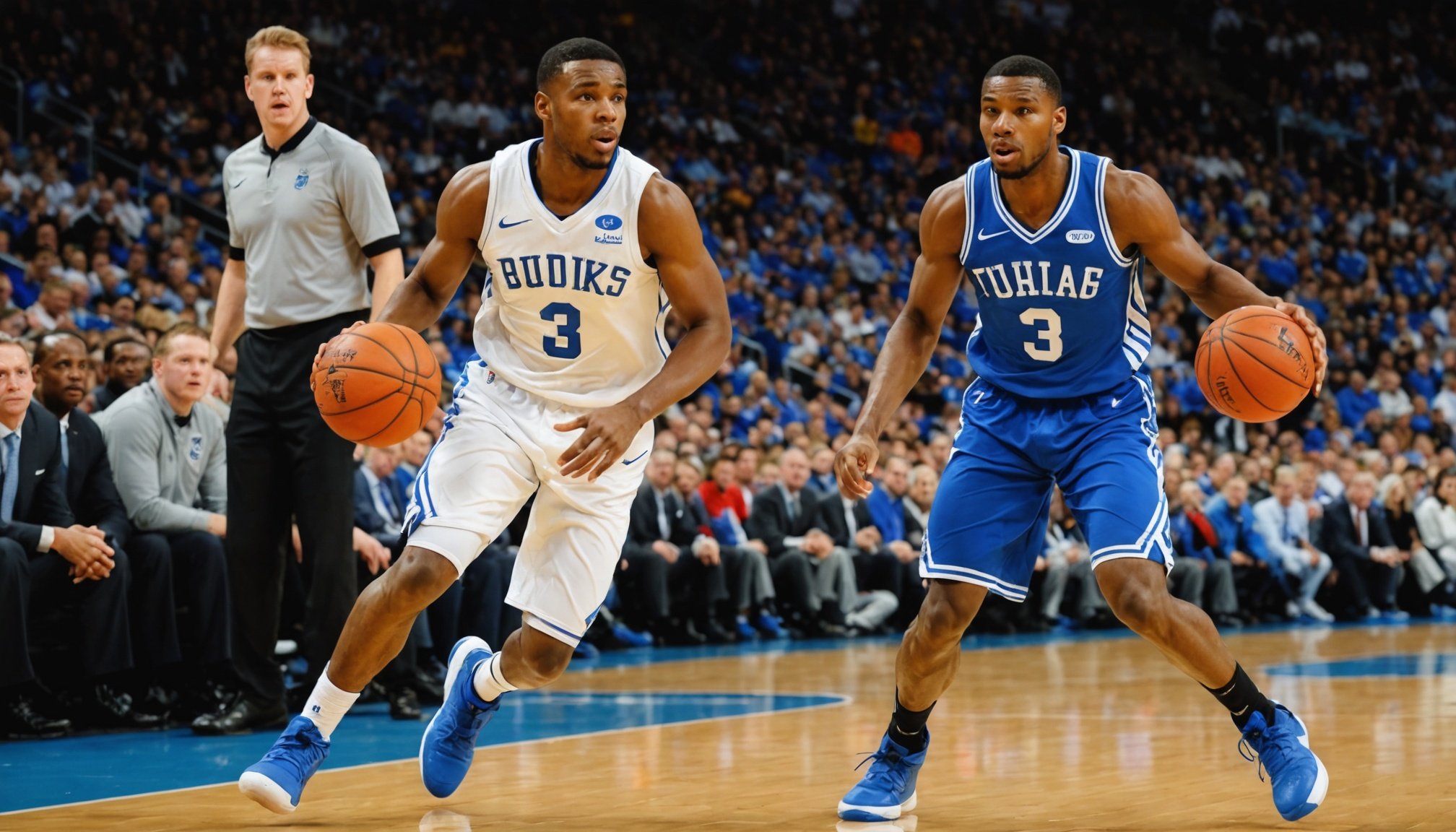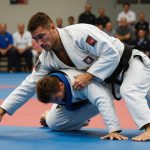Mastering Game-Day Nerves: Top Strategies for UK Basketball Players to Thrive Under Pressure
Understanding the Pressure of Game Day
For UK basketball players, game day can be a daunting experience, filled with high stakes and intense pressure. The combination of physical demands and mental stress can be overwhelming, especially for young athletes. However, with the right strategies, players can learn to manage their nerves and perform at their best.
The Psychological Impact of Pressure
Pressure in sports can manifest in various ways, including anxiety, self-doubt, and negative thoughts. These mental challenges can significantly impact a player’s performance, making it crucial to develop mental toughness and emotional regulation skills.
Have you seen this : Mastering the Mind: Effective Psychological Techniques for UK Basketball Players to Conquer Performance Anxiety
“Pressure is a privilege,” as noted by Billie Jean King, emphasizing that it is an opportunity to rise to the challenge. However, this privilege comes with the need for effective mental preparation. Coaches and sports psychologists play a vital role in helping players develop these skills.
Strategies for Managing Game-Day Nerves
Show the Face Your Team Needs to See
Leadership is key in managing game-day nerves. Coaches like Mike Krzyzewski of Duke University emphasize the importance of managing one’s own emotions to inspire confidence in the team. As Coach K advises, “A leader must show the face his team needs to see.” This means displaying confidence when players are doubtful, composure when they are panicked, and optimism when they have given up[3].
Also to see : Mastering the court: innovative training strategies for uk basketball players on diverse playing surfaces
Reframe Pressure as a Fun Challenge
Reframing pressure as a fun challenge can significantly reduce stress. Former North Carolina men’s basketball coach Dean Smith was known for his calm demeanor in high-pressure situations. He would often say, “Isn’t this fun?” or “Wouldn’t it be great to come back and win this one?” This approach helps take the pressure off players and turns the situation into an exciting opportunity[3].
Focus on What You Want Players to Do
Instead of telling players what not to do, focus on what you want them to achieve. This is based on the psychological principle of the primacy and recency effect, where athletes remember the first and last things they are told. For example, instead of saying “Don’t foul,” say “Let’s focus on maintaining our defensive stance and making smart plays”[3].
Mental Preparation Techniques
Breathing Exercises and Self-Talk
Breathing exercises and positive self-talk are powerful tools for managing anxiety and staying focused. Deep breathing can help calm the nervous system, while positive self-talk can boost confidence and resilience.
- Diaphragmatic Breathing: Take slow, deep breaths through the nose, filling the diaphragm rather than shallow chest breathing.
- Positive Affirmations: Use positive self-talk to reinforce confidence and focus. For example, “I am prepared,” “I can handle this,” or “I trust my training.”
Visualization and Goal Setting
Visualization and goal setting are essential for mental preparation. Players should visualize themselves performing well and achieving their goals.
- Visualization: Imagine yourself making successful plays, scoring points, and contributing to the team’s success.
- Goal Setting: Set both short-term and long-term goals. Short-term goals might include performing well in a specific game, while long-term goals could be improving overall performance or making it to a championship.
Physical Training to Enhance Mental Toughness
Plyometric Training
Plyometric training, which involves explosive movements, can enhance physical performance and indirectly contribute to mental toughness. Exercises like box jumps, depth jumps, and bounds improve neuromuscular efficiency and muscle elasticity, allowing players to execute explosive plays with greater ease[5].
| Plyometric Exercise | Description | Benefits |
|---|---|---|
| Box Jumps | Jumping onto a raised platform | Improves vertical leap and lower body strength |
| Depth Jumps | Jumping vertically after stepping off a box | Enhances reactive strength and neuromuscular efficiency |
| Bounds | Leaping forward with long strides | Improves coordination and leg power |
Agility Drills and Cardiovascular Training
Incorporating agility drills and cardiovascular training into a plyometric routine can elevate a player’s overall fitness and mental resilience.
- Agility Drills: Improve quickness and coordination, essential for effective lateral movements and defensive plays.
- Cardiovascular Training: Boost endurance, allowing players to maintain high-intensity efforts throughout games.
Team Dynamics and Social Support
Knowing Who Thrives Under Pressure
Understanding which players thrive in pressure situations is crucial. Coaches should identify players who want to step up and make key plays, as advised by Tennessee women’s basketball coach Pat Summitt: “When we are trying to decide who should take our last-second shot, we need to know who wants the ball”[3].
Building a Supportive Team Environment
A supportive team environment can significantly help players manage their nerves. Encourage open communication, teamwork, and mutual respect among players.
- Team Meetings: Hold regular team meetings to discuss strategies, address concerns, and build camaraderie.
- Player Feedback: Encourage players to provide feedback and support each other during games and practices.
Practical Insights and Actionable Advice
Pre-Game Routine
Developing a consistent pre-game routine can help players feel more grounded and focused.
- Warm-Up Exercises: Include a mix of physical warm-ups and mental preparation techniques like visualization and positive self-talk.
- Pre-Game Talk: Use the pre-game talk to reinforce positive messages and focus on what the team wants to achieve.
Staying in the Present Moment
Staying in the present moment is key to managing high-pressure situations. Encourage players to focus on the current play rather than worrying about the outcome of the game.
- Attention and Concentration: Teach players to maintain attention and concentration on the task at hand.
- Mindfulness: Practice mindfulness techniques to help players stay present and avoid negative thoughts.
Mastering game-day nerves is a multifaceted challenge that requires a holistic approach. By combining mental preparation techniques, physical training, and a supportive team environment, UK basketball players can thrive under pressure.
Key Takeaways
- Mental Preparation: Use breathing exercises, positive self-talk, visualization, and goal setting to enhance mental toughness.
- Physical Training: Incorporate plyometric training, agility drills, and cardiovascular exercises to improve physical performance and resilience.
- Team Dynamics: Build a supportive team environment and identify players who thrive under pressure.
- Pre-Game Routine: Develop a consistent pre-game routine that includes both physical and mental preparation.
- Staying Present: Focus on the present moment and maintain attention and concentration.
By implementing these strategies, young athletes can better manage their nerves and perform at their best, even in the most high-pressure situations. Remember, as Coach Dean Smith said, “Isn’t this fun?” – turning pressure into an exciting challenge can make all the difference.






